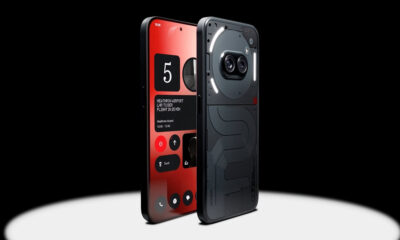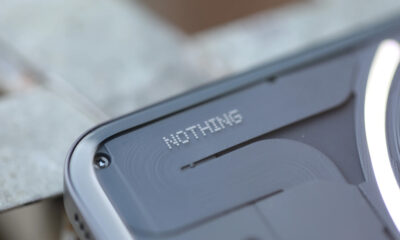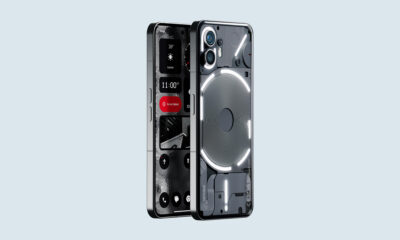News
Nothing Phone (1) Is Here, And You Can Afford It
All models of the Phone (1) are available in black or white across more than 40 markets including Saudi Arabia, Israel, and United Arab Emirates.
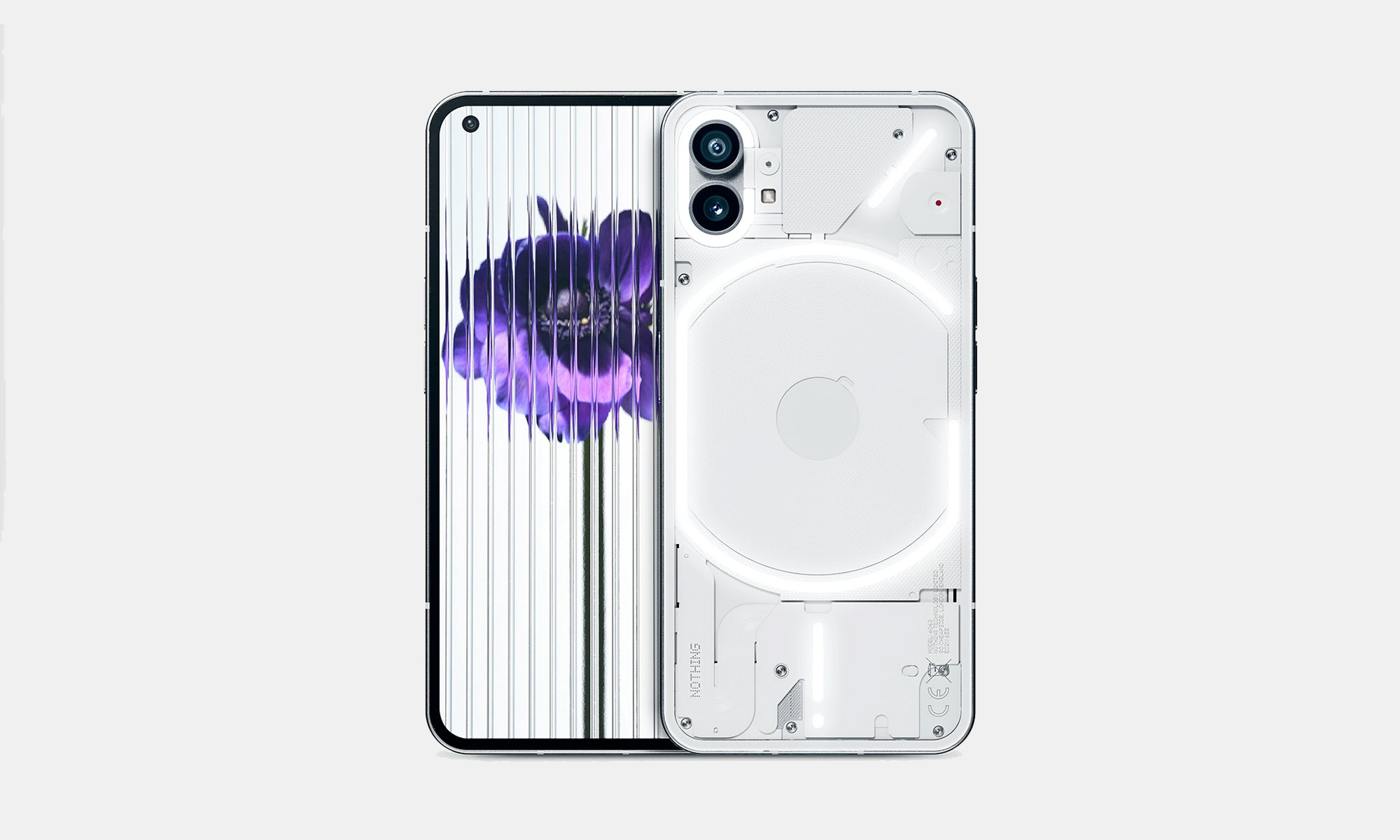
A new contender in the smartphone arena is here, and its name is Phone (1). The company behind it, Nothing, was founded in 2020 by Carl Pei, after the Swedish entrepreneur left OnePlus, which he co-founded along with Pete Lau.
The Phone (1) is actually Nothing’s second product. The first was a pair of Teenage Engineering-designed wireless earbuds, called Ear (1).
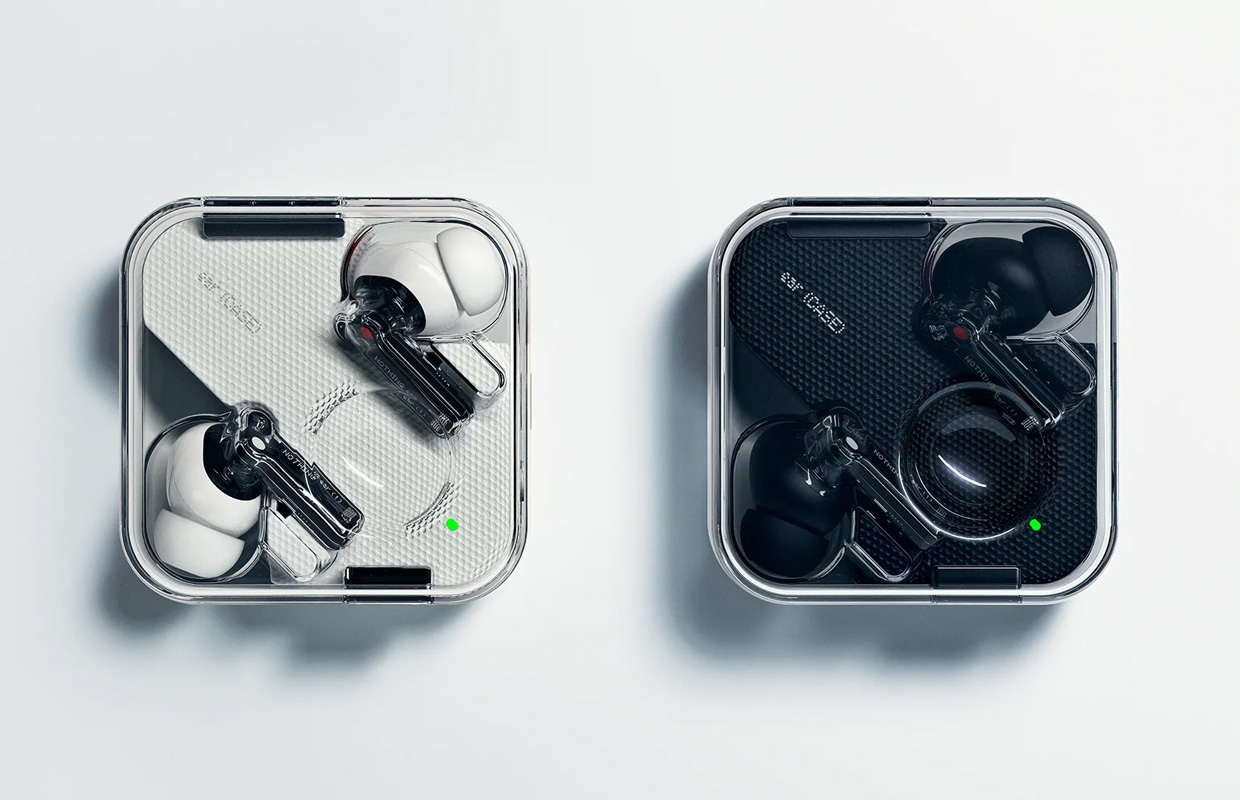
Just like the wireless earbuds before it, the Phone (1) attempts to grab the attention of consumers with an unusual design and better features than what its starting price of £399 (around $475 USD) would suggest.
The base model comes with 8 GB of RAM and 128 GB of storage. It costs £50 to increase the amount of storage space to 256 GB, and £100 to also upgrade RAM to 12 GB. All models of the Phone (1) are available in black or white across more than 40 markets including Saudi Arabia, Israel, and United Arab Emirates.
The back of the smartphone features unique light strips that visually set it apart from all other devices on the market. But the light strip isn’t just about looks. For example, it indicates how full the battery is, and it can also flash to let you know that you have a new notification.
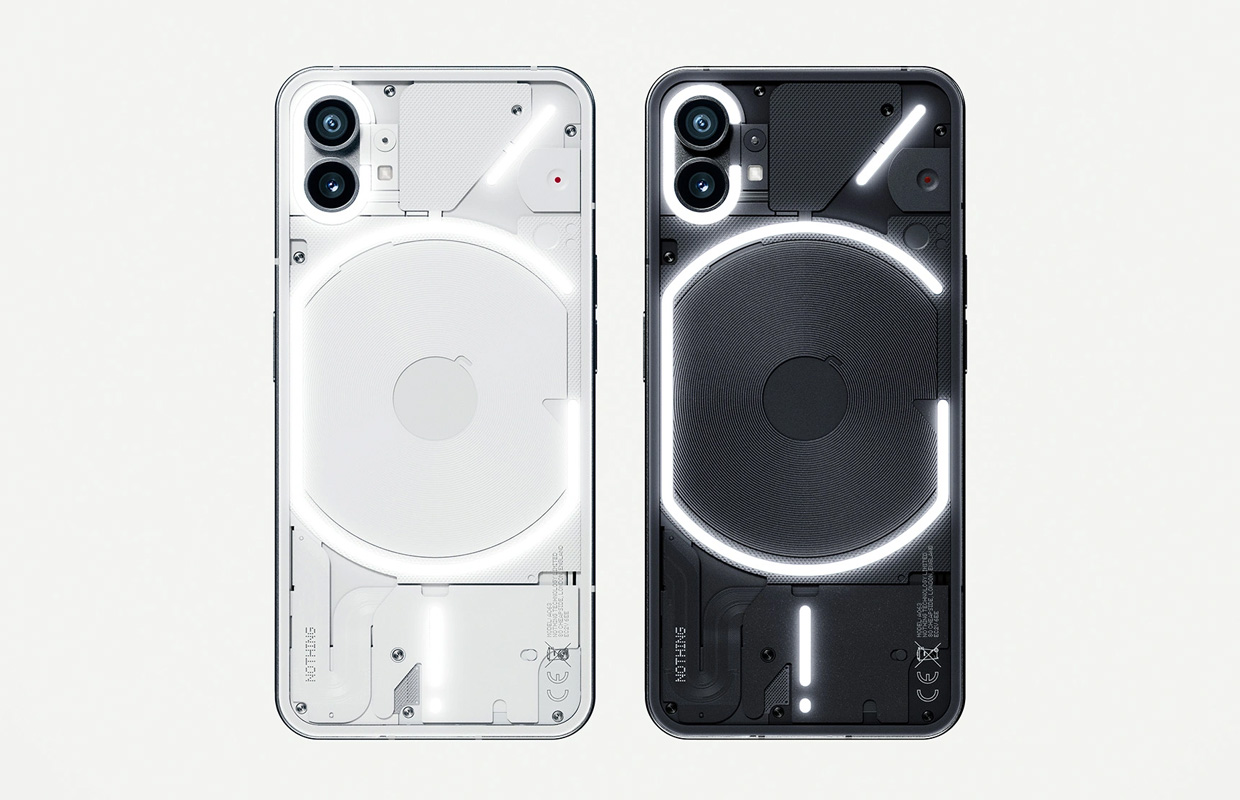
When looking at the rear side of the Phone (1), you’ll also notice two camera lenses: one standard and one ultrawide. Below both lenses are 50 MP sensors, and the main camera even has optical and electronic image stabilization (OIS and EIS), so you should be able to take sharp pictures even in low-light conditions.
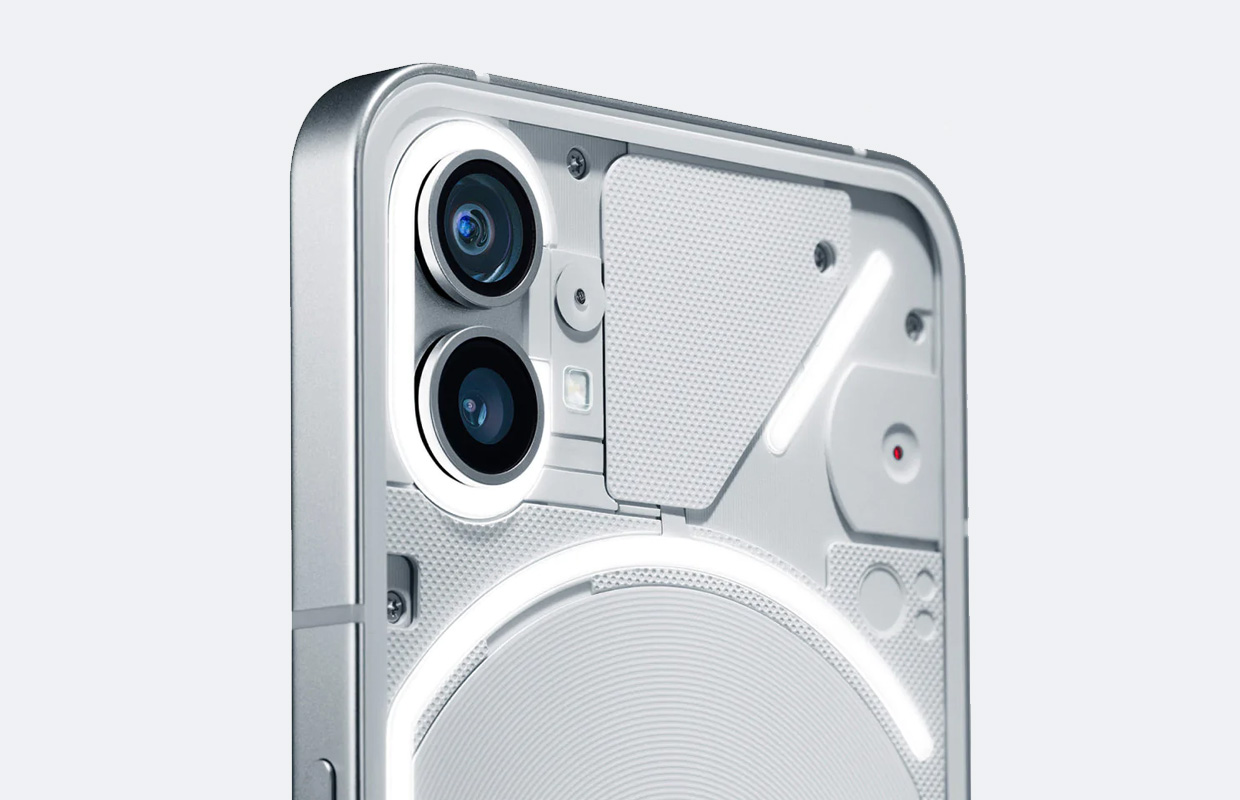
It’s worth noting that the ultrawide camera doubles as a macro camera because it can focus as close as 4 centimeters from an object.
Also Read: DDoS Attacks Are A Growing Threat In Gaming
The front side of the Phone (1) houses a 6.55-inch 1080p OLED display that can reach up to 1,200 nits of peak brightness and a refresh rate of 120 Hz. The display has a small hole-punch cutout for the front-facing 16 MP selfie camera, and it integrates an in-display fingerprint sensor.
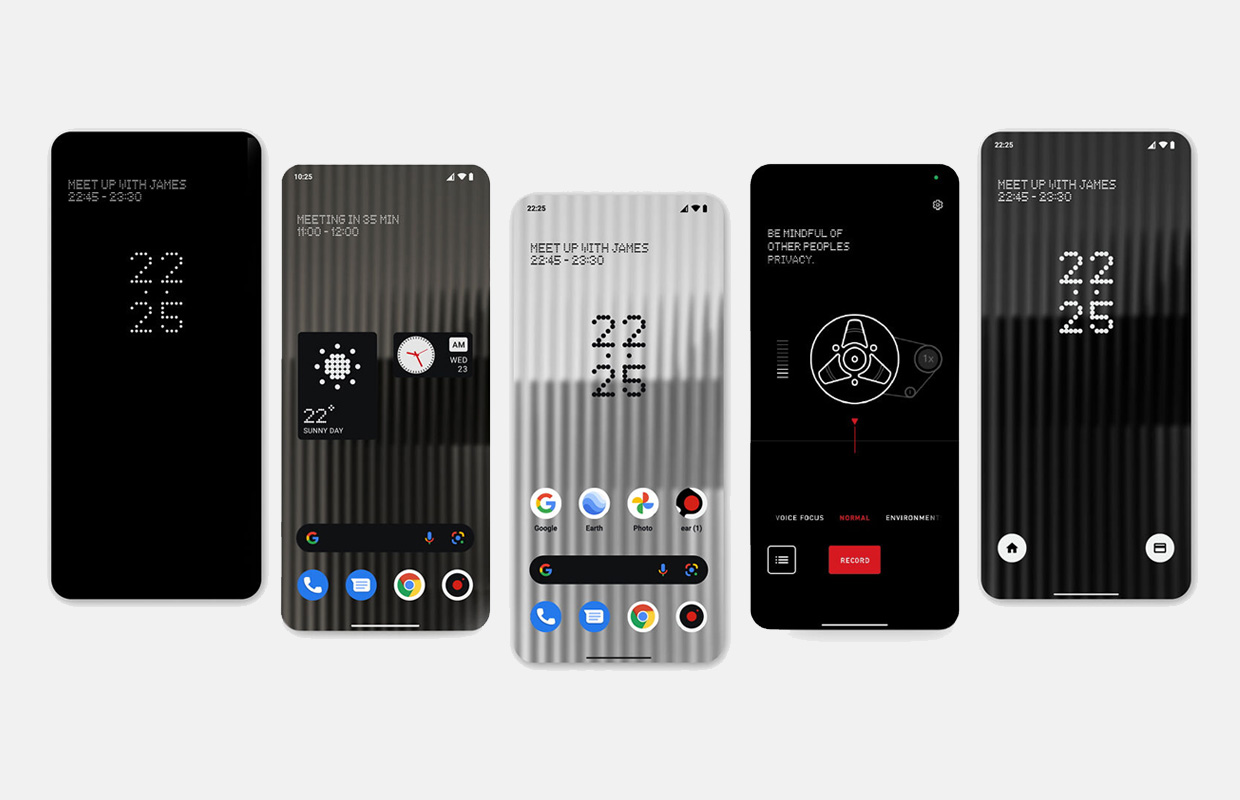
Powering the Phone (1) is the Qualcomm Snapdragon 778G Plus processor. While not as capable as Qualcomm’s flagship Snapdragon 8 Gen 1 processor, it should still keep the phone’s Android-based operating system, Nothing OS, running smoothly for a long time.
News
Samsung Smart Glasses Teased For January, Software Reveal Imminent
According to Korean sources, the new wearable will launch alongside the Galaxy S25, with the accompanying software platform unveiled this December.

Samsung appears poised to introduce its highly anticipated smart glasses in January 2025, alongside the launch of the Galaxy S25. According to sources in Korea, the company will first reveal the accompanying software platform later this month.
As per a report from Yonhap News, Samsung’s unveiling strategy for the smart glasses echoes its approach with the Galaxy Ring earlier this year. The January showcase won’t constitute a full product launch but will likely feature teaser visuals at the Galaxy S25 event. A more detailed rollout could follow in subsequent months.
Just in: Samsung is set to unveil a prototype of its augmented reality (AR) glasses, currently in development, during the Galaxy S25 Unpacked event early next year, likely in the form of videos or images.
Additionally, prior to revealing the prototype, Samsung plans to introduce…
— Jukanlosreve (@Jukanlosreve) December 3, 2024
The Galaxy Ring, for example, debuted in January via a short presentation during Samsung’s Unpacked event. The full product unveiling came later at MWC in February, and the final release followed in July. Samsung seems to be adopting a similar phased approach with its smart glasses, which are expected to hit the market in the third quarter of 2025.
A Collaborative Software Effort
Samsung’s partnership with Google has played a key role in developing the smart glasses’ software. This collaboration was first announced in February 2023, with the device set to run on an Android-based platform. In July, the companies reiterated their plans to deliver an extended reality (XR) platform by the end of the year. The software specifics for the XR device are expected to be unveiled before the end of December.
Reports suggest that the smart glasses will resemble Ray-Ban Meta smart glasses in functionality. They won’t include a display but will weigh approximately 50 grams, emphasizing a lightweight, user-friendly design.
Feature Set And Compatibility
The glasses are rumored to integrate Google’s Gemini technology, alongside features like gesture recognition and potential payment capabilities. Samsung aims to create a seamless user experience by integrating the glasses with its broader Galaxy ecosystem, starting with the Galaxy S25, slated for release on January 22.


